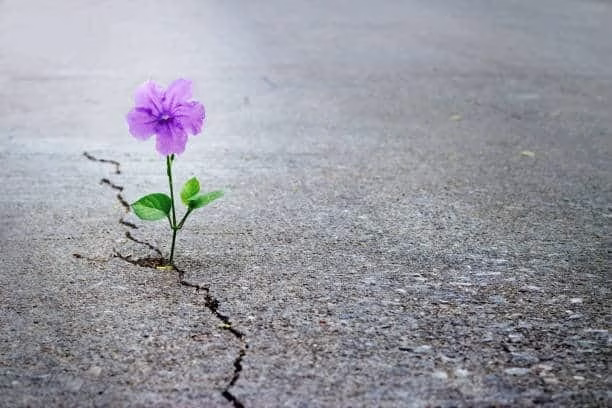Grit is the Ultimate Privilege

The internet is in the middle of a turbulent discussion > about privilege—including what the privileges are, who has them, and what can be done to equalize things.
Listen to the AUDIO VERSION >
Examples of privileges include being of a culturally-dominant race, having rich parents, having well-connected friends, living in large and/or coastal cities, etc.
The basic argument is that those who have achieved greatly often don’t deserve what they’ve achieved because they were part of one or more privileged groups. And, conversely, it’s not ok to blame people who are in non-privileged groups for not succeeding because they didn’t have the same advantages.
As someone who doesn’t believe in free will >, I am largely on-board with this argument. The no-free-will line says that we are products of our genetics and our environments, and that because we don’t have control of either of those, we cannot be in control of outcomes. And the same goes for human outcomes such as education and financial success.

Where I differ from some making the privilege argument is in regard to next steps, and in hopefully not being confused about the causal relationship between the participating variables.
Indian Americans are the most successful group of Asians in America today.
When you look at that most successful groups in America today, Americans of Asian descent show as the clear winners—far surpassing whites in education attained >, money earned >, and a number of other standard indicators.
And when these groups are studied, one of the primary things that sets them apart is their home life, their upbringing, and the self-discipline instilled in them by their extremely present, helicoptering, and success-driven parents. In a word, Asian Americans that succeed are heavily imbued with grit.

There is much discussion about the word grit, and what it means, but a common thread in the conversation always reduces to delaying gratification. A very early study > showed that children who could delay eating marshmallows that were in front of them, to get more later, ended up doing better in life than those who could not control themselves.
And a number of other studies have shown that grit is even more important than IQ > in determining future success.
So that brings us to the question. If grit determines who does well in school, and therefore who gets the good jobs, and has the stable families, and achieves financial success, then where does it come from? Is it nature or nurture? As it turns out, it doesn’t really matter. Either way it will come down as a privilege in today’s parlance.
Congratulations on picking your tiger parents.
If it’s genetic, then you got lucky by being whatever lineage that gave you a lot. And if it’s upbringing, then you got lucky by picking your parents well.
Billionaires fund schools in low-income areas, for example.
So how do we equalize that? With other privileges it seems more straightforward. If it’s a dominant racial group, or a lucky trust-fund kid, it seems fairly clear why people are asking for reparations to be made. The one group just gives money to the other group so it can then be equalized, and we move on towards eventual equality.
But with grit the situation is much more complex. With grit we’re saying it’s not a matter of current financial situation that makes the difference. Many of these Asian families producing the best-performing kids in high-school and university come from the worst neighborhoods, and the top academic achievements in bad communities almost always go to Asians.
In other words, if the most powerful privilege is actually self-discipline—which comes from a strict, two-parent family upbringing that’s focused on academic and extra-curricular performance—how are we supposed to give that to other groups that don’t have it?

It seems both the left and right responses to this are oblivious. The right says, "Exactly! It’s all about work ethic! So if you don’t have it, that’s your own fault, and you deserve to suffer!" And the left says, "No, it’s not work ethic, it’s bad families, and oppression, and racism, all caused by those who have other kinds of privilege."
But neither of these approaches helps anyone. The right is wrong because it’s foolish to reward and punish people for things they didn’t choose (genetics, parents, environment, etc.), and the left is wrong because blaming people with high self-discipline for the suffering of those with low self-discipline is a losing battle that only moves people towards the right.
It seems clear to me that the path forward is to identify grit as a top-tier marker of success, and work to optimize people, families, and communities for maximizing it. That will require ideas from the left, the right, and from new places outside our current political models.
The ultimate privilege—that yields the greatest rewards over time—is self-discipline. And if we want to help the most people possible, have the maximum amount of personal responsibility possible, which ultimately leads to less suffering and more human flourishing, that’s the thing we need to focus on improving.
Notes
This essay does not assume, as many on the right do, that systemic racism and sexism have been adequately solved, and that it’s time to put it all behind us. What I’m doing here is saying that the fastest way for those suffering from those things is to develop grit in themselves, their families, and their communities. But we absolutely need to continue the battle against external causes of disparity as well. That work has seen tremendous progress, but it is not done.
No related posts.